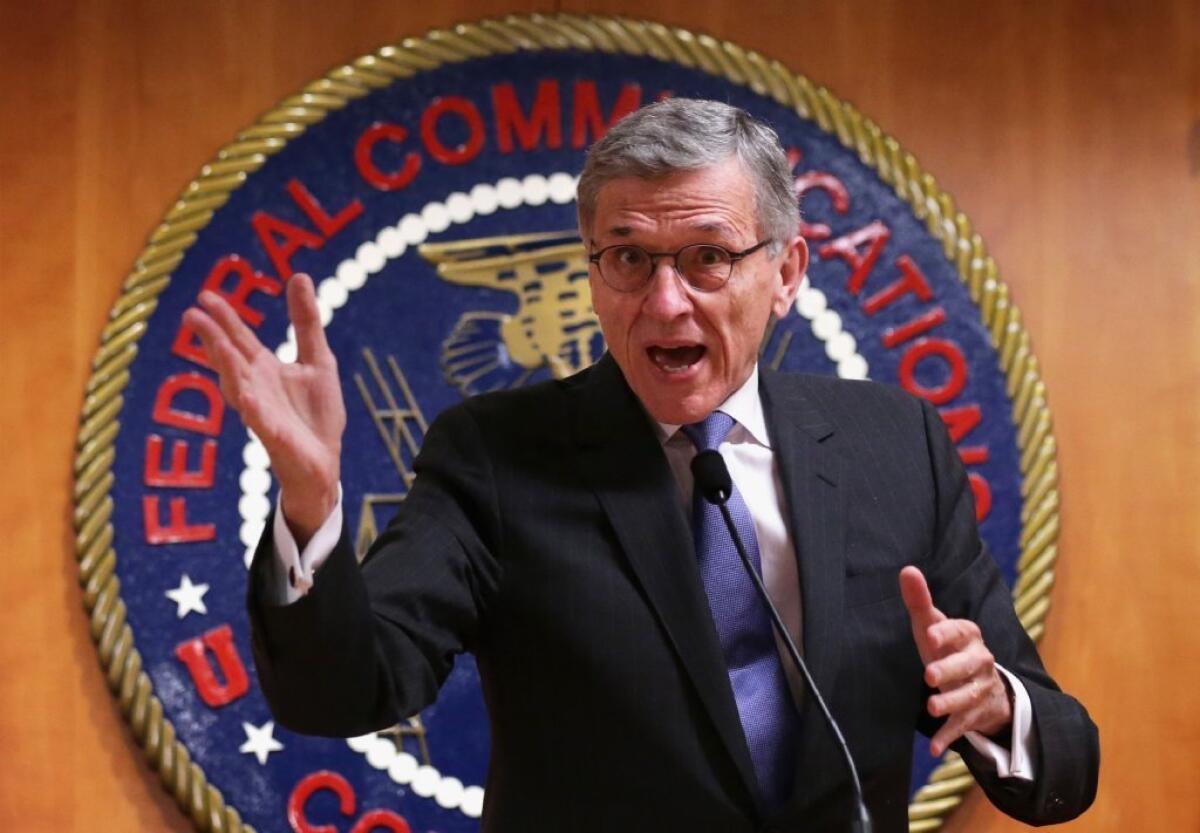Editorial: Staying true to net neutrality

Chairman Tom Wheeler of the Federal Communications Commission said all the right things about net neutrality Thursday as the agency voted to release draft rules for preserving the open Internet. Nevertheless, real questions remain about whether the proposal he’s championed is the right way to protect the Internet’s reach, connectivity and innovative spirit. Perhaps that’s why the commission provided an unusually long time for the public to comment on Wheeler’s proposal and possible alternatives. It’s a reminder that, despite the near-hysteria drummed up by some net neutrality advocates, we’re still at the start of the rule-making process, not the end.
At issue is whether and how the government should try to stop certain Internet service providers — companies such as AT&T, Verizon and Time-Warner Cable that connect individual users to the Net — from favoring some sites and services over others. The fear is that ISPs would sell high-priority delivery to deep-pocketed companies, enabling their content to look and perform better at the expense of everyone else’s. Although the FCC has been saying for a decade that broadband access service should be free from such interference, the courts have twice rejected its rules and enforcement efforts. There are no neutrality rules in force today, just antitrust and consumer protection laws to deter ISPs from tilting the online playing field.
Wheeler has proposed taking a case-by-case approach that would forbid ISPs from striking “commercially unreasonable” deals with sites and services that want to pay for premium access to Internet users. Critics on the left say his approach would lead to a “two-tiered” Internet with fast lanes for big companies and slow lanes for start-ups and innovators, while those on the right say it’s a solution in search of a problem. The proposal is moving ahead in part because of language Wheeler added to clarify the sorts of deals ISPs would be barred from making, providing more assurance that consumers and content providers wouldn’t face slowdowns, and giving more weight to a stringent regulatory alternative favored by many neutrality advocates.
Before Thursday’s vote, Wheeler emphatically declared his opposition to a two-tiered Internet. “There is one Internet. It must be fast, it must be robust, and it must be open,” he said, adding, “The prospect of a gatekeeper choosing winners and losers on the Internet is unacceptable.” He’s right about all that, yet good intentions don’t count for much. The commission needs to show that whatever rules it adopts will actually promote innovation and investment, set clear guidelines for ISPs that won’t shift with the political winds, and have a solid basis in law. Wheeler’s statements raise the hope that the new rules will meet those tests. But the scrutiny is just starting.
More to Read
A cure for the common opinion
Get thought-provoking perspectives with our weekly newsletter.
You may occasionally receive promotional content from the Los Angeles Times.










